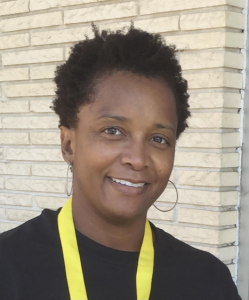
As Black History Month concludes, we invited our grant writer Kenya Welch to weigh in on the immense and far-reaching impact of substance use disorders on communities of color, especially Black communities. Here’s what she had to say.
While the current overdose epidemic has been framed as a public health crisis, it has deeper, less sympathetic roots for Black Americans who were categorically criminalized during the “War on Drugs.” While attention to the crisis has focused primarily on White suburban and rural communities, communities of color, and especially Black communities, have experienced dramatic increases in substance use disorders and overdose deaths.
In fact, the rate of increase of Black overdose deaths between 2015-2016 was 40% compared to the overall population increase at 21%, exceeding all other racial and ethnic population groups in the U.S. From 2011-2016, compared to all other populations, Blacks had the highest increase in overdose death rate for opioid deaths involving synthetic opioids like fentanyl and fentanyl analogs. More recently, according to a report by the Boston Medical Center, “while white fatalities have decreased through 2019, opioid overdose deaths among Black Americans — particularly Black men — are accelerating.”
Black, Indigenous, and People of Color (BIPOC) have traditionally fared poorly in American healthcare statistics, so the vast disparity in substance-related outcomes for Blacks in America is no surprise. In addition to historical racism in the healthcare system, there are many complex factors involved in treatment and recovery services in communities of color. Although one-size-fits all solutions would be ideal, their effectiveness is simply not reality. As SMART Recovery moves to intentionally increase our presence in diverse communities, how can we be more effective? Here are a few thoughts:
- Use local community members as trusted experts and partners. Local community members have unique insight into the needs of their neighbors. Their expertise and participation will be sought to become our partners and collaborators.
- Create holistic systems of treatment/care that can help those in recovery to access supportive services. Treatment and recovery do not exist in a vacuum, and support resources like mental health care, job training, and housing are often necessary. SMART recognizes the value of partnerships with community-based organizations that address the many intersecting issues that complicate success.
- Decrease obvious barriers that can stand between people and recovery services. For example, have in-person meetings at locations that are in diverse communities, accessible by public transportation, and at times that accommodate participant work schedules.
- Representation matters. Use training resources that include diverse communities’ voices, facilitators that practice respect for diverse cultures, and services that recognize and address complex elements like historical distrust, community stigmas, and the need for privacy and confidentiality.
- Approach services with humanity and grace. Recognize that no community is monolithic; each of us has a unique story and path leading us to where we are. Our job in the recovery space should be one grounded in respect, compassion, and grace. Our job is to open doors to spaces that are safe enough for all people to walk through.
We would love to hear your ideas on ways we can make SMART a safe space for ALL. Please feel free to add your thoughts in the comments.

